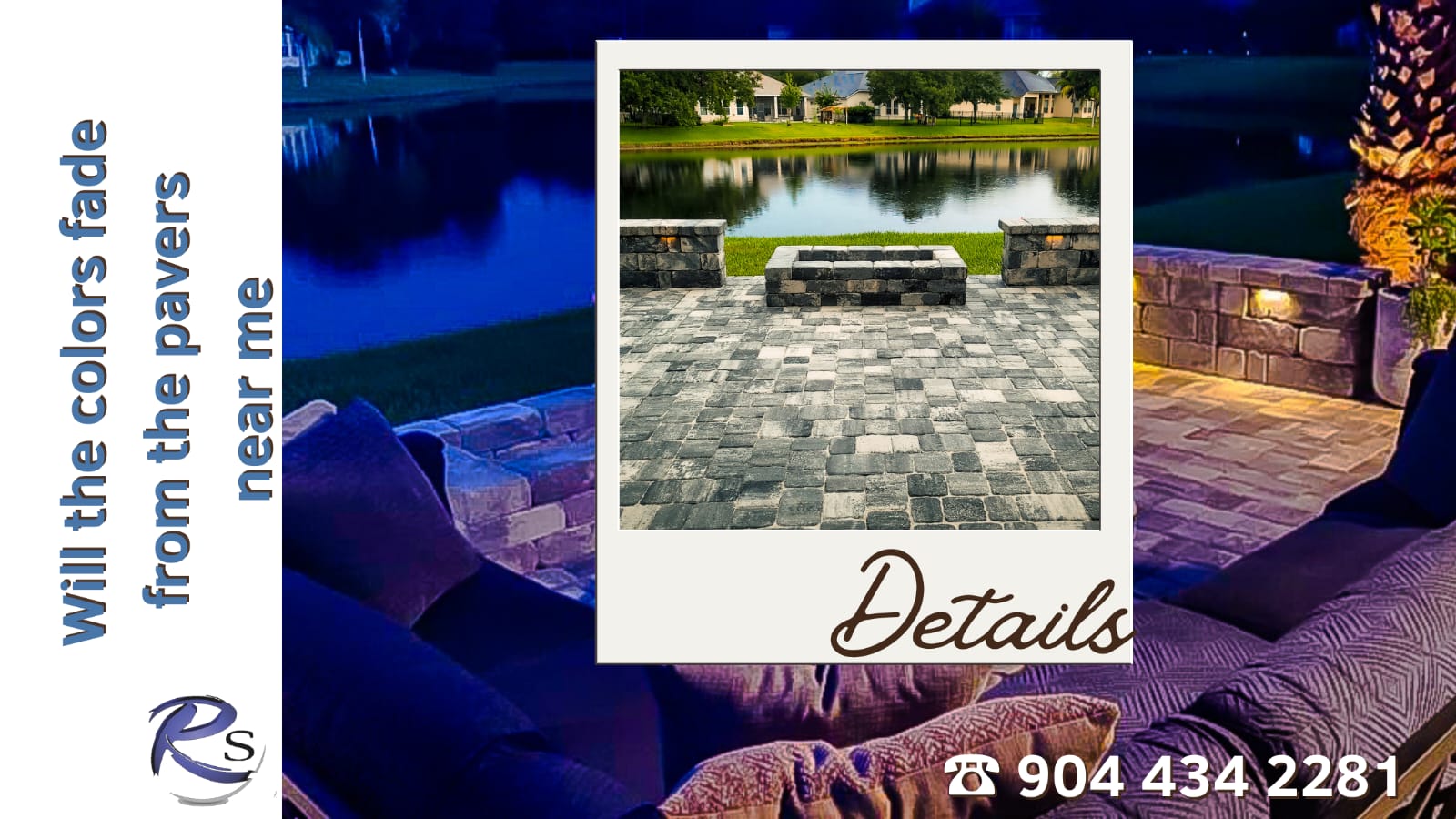When it comes to choosing pavers for your outdoor spaces, one important consideration is whether or not the colors will fade over time. No one wants to invest in a beautiful patio or walkway, only to have the colors dull and fade after a few short years. In this article, we will explore the key factors that impact the color fade of pavers, and provide insights into making the best decision for your needs.
What are Pavers Near Me
Pavers are a popular choice for many homeowners and landscapers due to their versatility and durability. They are often used to create outdoor spaces such as patios, walkways, driveways, and pool decks. Pavers are available in a wide range of materials, including concrete, clay, natural stone, and more.
Why Do Pavers Near Me Fade
The main reason paver Jacksonville fade over time is due to exposure to the elements. Sunlight, rain, snow, and even chemicals like salt and chlorine can all cause the colors to fade. Additionally, heavy foot traffic and regular use can also lead to wear and tear on the pavers, contributing to color loss.
Factors Impacting Color Fade
Several factors can impact the rate at which pavers fade. These include the type of material, the quality of the pigments used, the amount of UV exposure, and the level of maintenance and care given to the pavers.
Type of Material
Not all paver materials are created equal when it comes to color fade. For example, concrete pavers tend to be more prone to fading compared to natural stone or clay paver Jacksonville. This is because concrete is more porous and absorbs more UV radiation, leading to faster color loss. On the other hand, natural stone and clay pavers are often more resistant to fading due to their dense structure.
Quality of Pigments
The quality of the pigments used in the manufacturing process can greatly impact the fading of pavers. Higher quality pigments are more resistant to UV radiation and tend to retain their color longer. Cheaper pigments, on the other hand, may not be as durable and can fade more quickly.
UV Exposure
UV radiation from the sun is one of the main culprits behind color fade in paver Jacksonville. The amount of UV exposure your pavers receive will depend on factors such as the location of your outdoor space, the direction it faces, and the presence of shading or trees. Pavers that are exposed to direct sunlight for long periods of time are more likely to fade compared to those in shaded areas.
Maintenance and Care
Proper maintenance and care can greatly extend the lifespan of your pavers’ color. Regular cleaning with mild detergents, avoiding harsh chemicals, and prompt removal of stains and spills can help preserve the vibrant colors of your pavers. Additionally, sealing your pavers can provide an extra layer of protection against fading.
Trade-Offs and Challenges
When it comes to pavers, there are trade-offs to consider when aiming to minimize color fade. For example, while natural stone and clay pavers may be more resistant to fading, they can be more expensive compared to concrete pavers. Concrete pavers, on the other hand, offer a wider range of color options and patterns but may require more maintenance to prevent fading.
Additionally, while sealing your pavers can help protect against fading, it can also alter the appearance and texture of the surface. Some homeowners may prefer the more natural look and feel of unsealed paver Jacksonville, while others prioritize longevity and are willing to sacrifice some aesthetics.
Another challenge is the unpredictability of fading. While certain factors can influence the rate at which pavers fade, it is impossible to accurately predict exactly how long it will take for the colors to dull. Environmental conditions, usage patterns, and other variables can all impact the fading process. Therefore, it is important to establish realistic expectations and be prepared for some level of color change over time.
Importance of Considering Color Fade
The colors of your pavers can greatly impact the overall aesthetics of your outdoor space. Faded pavers can significantly detract from the visual appeal, making the space appear dull and worn out. Additionally, if your pavers are part of a larger landscaping project, such as a harmonious color scheme or pattern, the fading of one element can disrupt the entire design.
Furthermore, color fade can also affect the value of your property. Potential homebuyers or visitors to your property may be less impressed if the pavers appear faded and aged. Investing in pavers that are less likely to fade can help maintain and even increase the value of your home.
Choosing Paver Jacksonville
When considering pavers for your outdoor spaces, it’s important to weigh the various factors impacting color fade to make an informed decision. Here are some key considerations to keep in mind:
Climate
The climate of your region plays a significant role in the color fade of pavers. Areas with intense sun exposure, high temperatures, and frequent UV radiation will experience faster color loss. If you live in a sunny climate, it may be worth considering paver Jacksonville with higher UV resistance or choosing lighter color options that are less prone to fading.
Usage
The amount of foot traffic and use your pavers receive will also impact their color fade. High-traffic areas, such as driveways or frequently used walkways, will likely experience faster color loss compared to less frequented areas. If you anticipate heavy use, choosing paver Jacksonville made from durable materials and opting for darker colors can help hide signs of fading.
Longevity
The lifespan of the pavers and the duration for which you want them to retain their original color will also influence your decision. If you prefer a more long-lasting solution, investing in high-quality pavers with superior fade resistance is advisable. However, if you’re willing to accept some color change over time and prefer the natural weathered look, you may opt for less expensive options that may fade more quickly.
Budget
Your budget is also an important factor to consider. While some paver materials, such as natural stone, may be more resistant to color fade, they are typically more expensive. Concrete pavers, on the other hand, offer a budget-friendly option with a wide range of color choices, but they may require more maintenance and are more likely to fade over time.
Mitigating Color Fade
Even with the best materials and maintenance, it is inevitable that pavers will experience some degree of color fade over time. However, there are steps you can take to slow down the fading process and extend the lifespan of your pavers’ colors:
Sealing
Sealing your pavers is a common practice that adds an extra layer of protection against fading. Sealants create a barrier that blocks UV radiation and prevents stains, moisture, and chemicals from penetrating the paver surface. Regular reapplication of sealant is necessary to maintain its effectiveness.
Cleaning
Regular cleaning of your pavers is essential for preventing dirt, grime, and stains from accumulating and causing color loss. Use a gentle detergent or specialized cleaner to remove any debris and avoid abrasive cleaning methods that can damage the surface and accelerate fading.
Avoid Harsh Chemicals
Avoid using harsh chemicals, such as bleach or ammonia, on your pavers as they can cause discoloration and accelerate fading. Opt for gentle cleaners specifically designed for paver maintenance.
Check other article
- Will the colors fade from the back patio pavers
- Get the perfect look for your home with pavers driveways
- Pavers walkway sealer can enhance colors
- Make An Impression With Driveways Pavers Near Me
Shade and Cover
If possible, consider adding shade structures or planting trees and shrubs to provide natural shade for your paver Jacksonville. Direct sunlight is a primary contributor to color fade, so minimizing exposure can help slow down the fading process.
Placement and Design
Strategically placing your pavers in areas that receive less direct sunlight, such as under covered patios or in shaded corners, can help preserve their color. Additionally, selecting paver designs that incorporate multiple colors or patterns can help camouflage the effects of fading and make any color change less noticeable.
Conclusion – Paver sJacksonville
When it comes to pavers near you, understanding the factors impacting color fade is crucial for making an informed decision. Consider the climate, usage, longevity, and your budget when choosing pavers, and be prepared to invest time and effort in maintenance to preserve their colors. While color fade is inevitable to some extent, implementing preventative measures like sealing, regular cleaning, and shading can help slow down the process and extend the lifespan of your paver Jacksonville’ vibrant colors. Remember, finding a balance between aesthetics, durability, and maintenance when selecting pavers will ensure a successful and long-lasting outdoor space. Prime.

